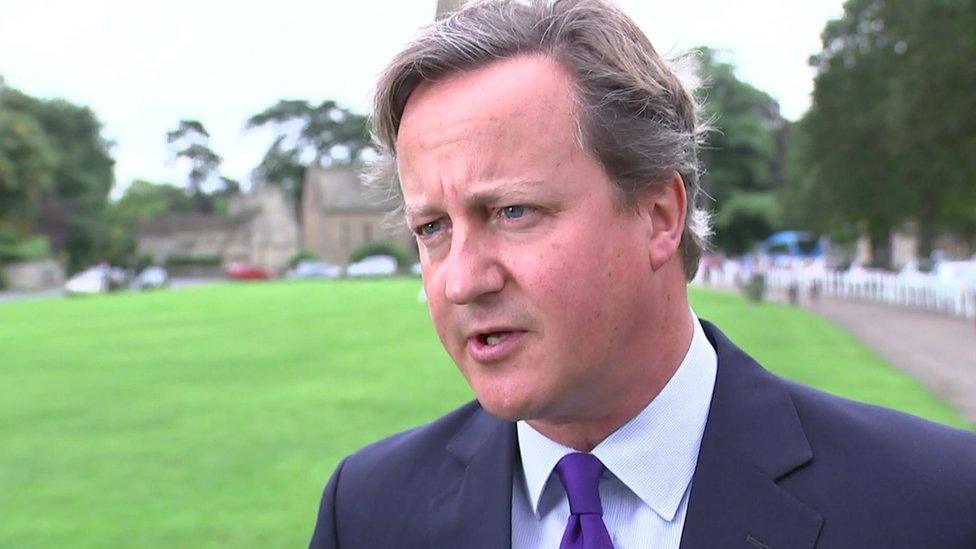Who would you put in a cabinet of ex-politicians?
- Published
These days politicians seem to rush for the exit when they lose power (or lose hope of power) rather than bouncing back Churchill-style to lead the country, or staying around to provide a wise word to their successors. So what could a cabinet look like now, made up entirely of those who stepped down voluntarily from the House of Commons?
Here, just for fun, is one possible line-up - you can send us your suggestions via the postform at the bottom of the page.
Prime Minister: Sir John Major
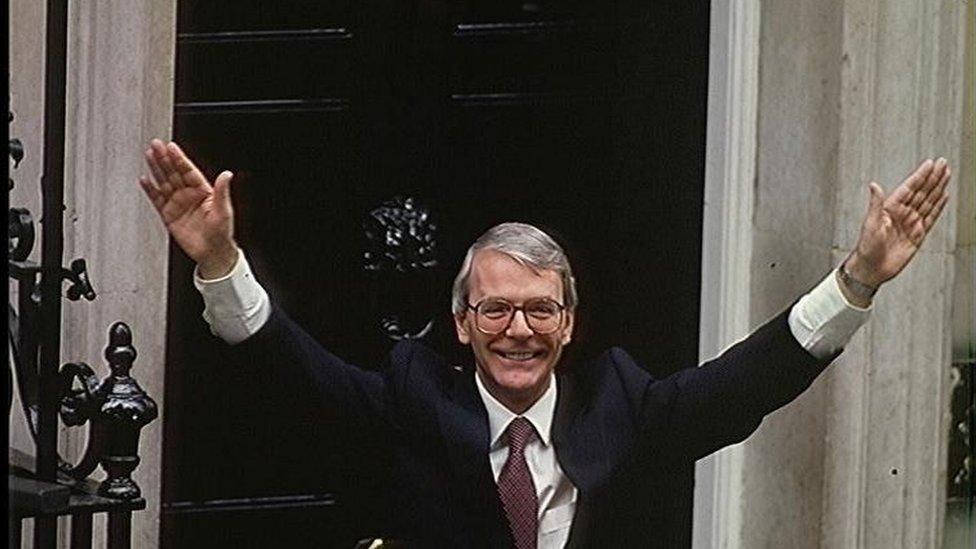
Given that there are four ex-prime ministers in this cabinet of all the (past) talents, the most unifying figure to lead them is the man who was Conservative Prime Minister from 1990 to 1997. He's used to having a more glamorous deputy - Michael Heseltine - and he's shown himself more than willing to have his enemies in his cabinet.
Chancellor: Gordon Brown
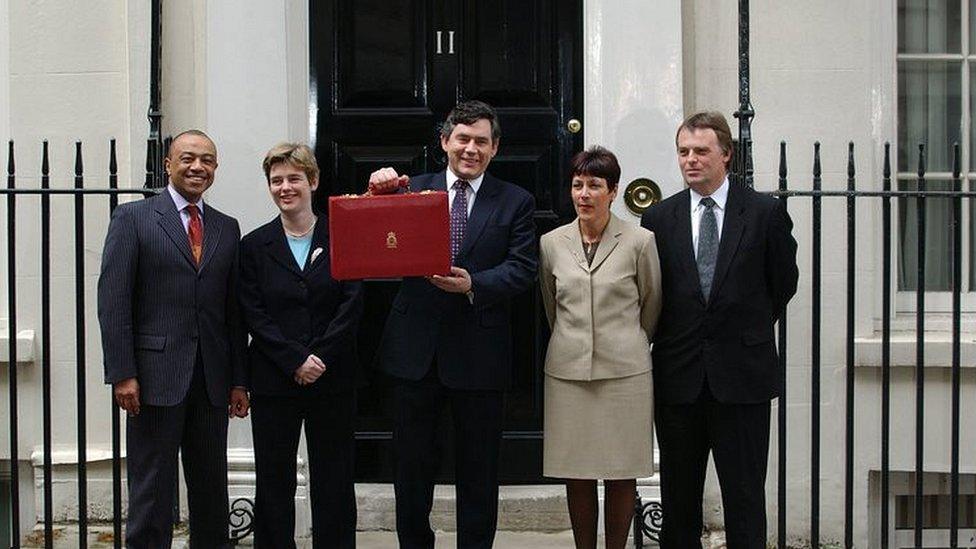
He spent 10 years at the Treasury in Tony Blair's New Labour government, with the economy growing nicely. But the recession that followed means there'll be no fate-tempting talk of abolishing "boom and bust". He's used to being at odds with the man next door - few would bet against Major being prompted to resign and hold a "back me or sack me" vote.
Foreign Secretary: William Hague
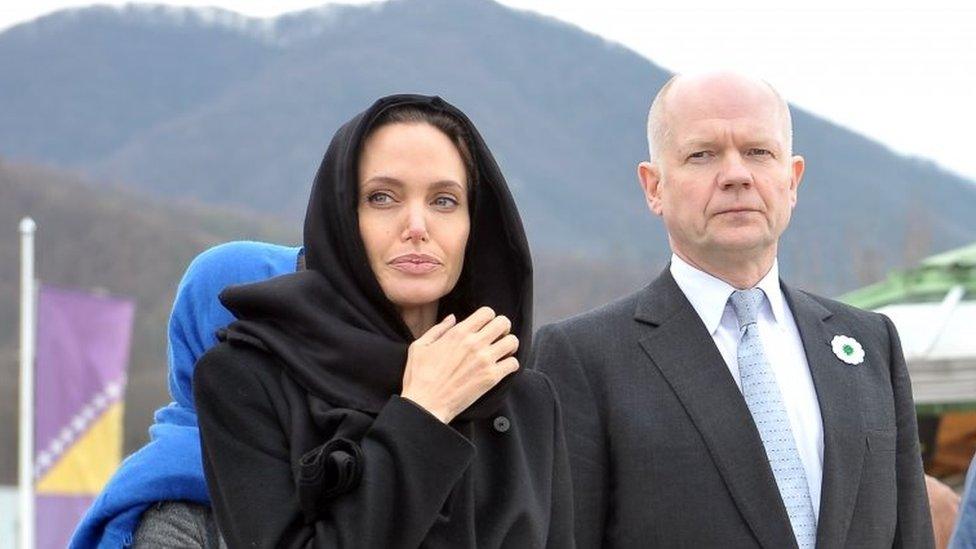
The one-time teenage Conservative conference darling led the party to a second big defeat at the 2001 general election. But he bounced back under David Cameron's leadership, becoming a respected figure on the international stage under the coalition government. His campaigning with Angelina Jolie, warm words about Hillary Clinton - and backing of Remain in the EU referendum - suggests that his world view will sit well with Messrs Major and Brown.
Education: Tony Blair
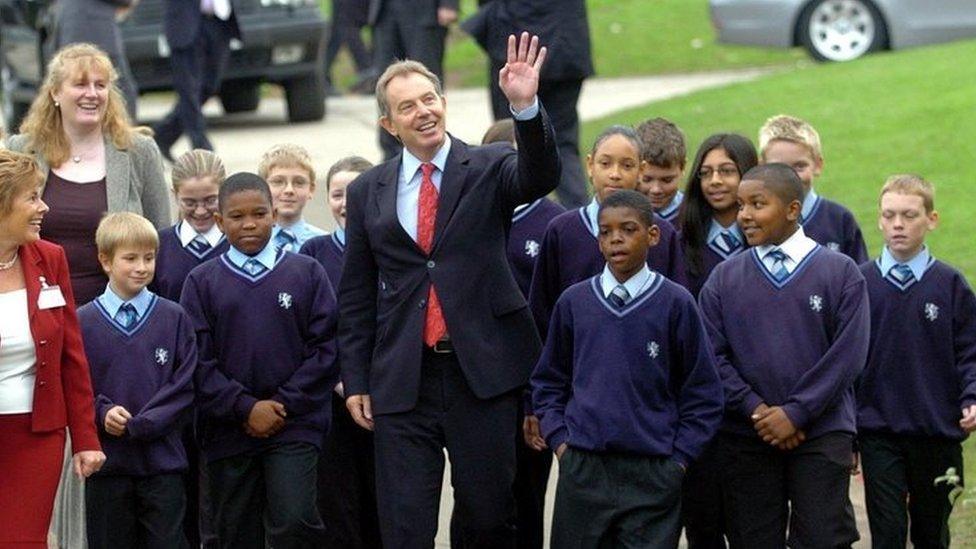
He might take some persuading to take on such a role and it could ruffle a few feathers among the current Department for Education staff. But he won his two landslide Labour victories in 1997 and 2001 on his domestic programme, which most famously was vocalised as "education, education, education". It seems unlikely he'd back a new generation of grammar schools but his foundation has some links to free schools and he has never been one to oppose faith schools.
Health: Virginia Bottomley
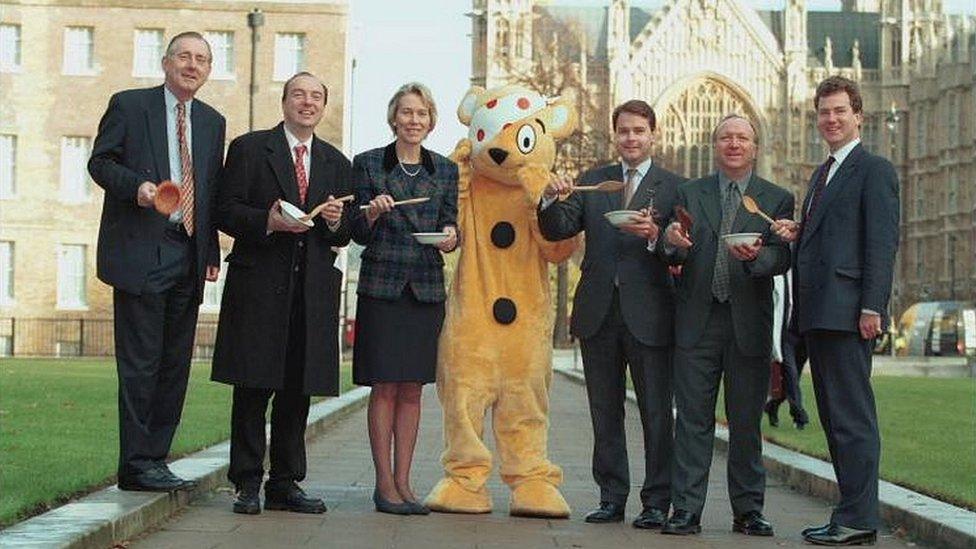
A chance to return to the role she held during the early John Major years before she moved on to the culture brief (hence the BBC Children in Need photocall above). There's some tough competition from fellow former health secretaries in this cabinet. But with her post-politics career as a top City headhunter - and champion of women on boards - there should be decent recruitment of NHS executives.
Home Secretary: Michael Howard
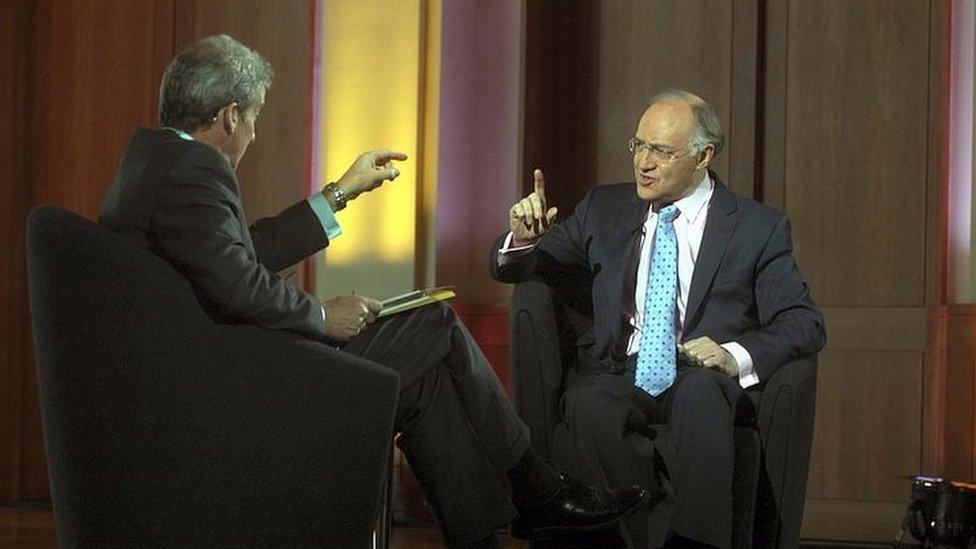
This would be a second remarkable comeback for Lord Howard who 13 years ago came from the then wilderness to become Conservative leader. His 1990s spell as home secretary is still remembered for the "prison works" message that proved popular with the public. His cameo in the referendum campaign showed that on Brexit he was thinking what a majority of British voters were thinking.
Defence: John Reid
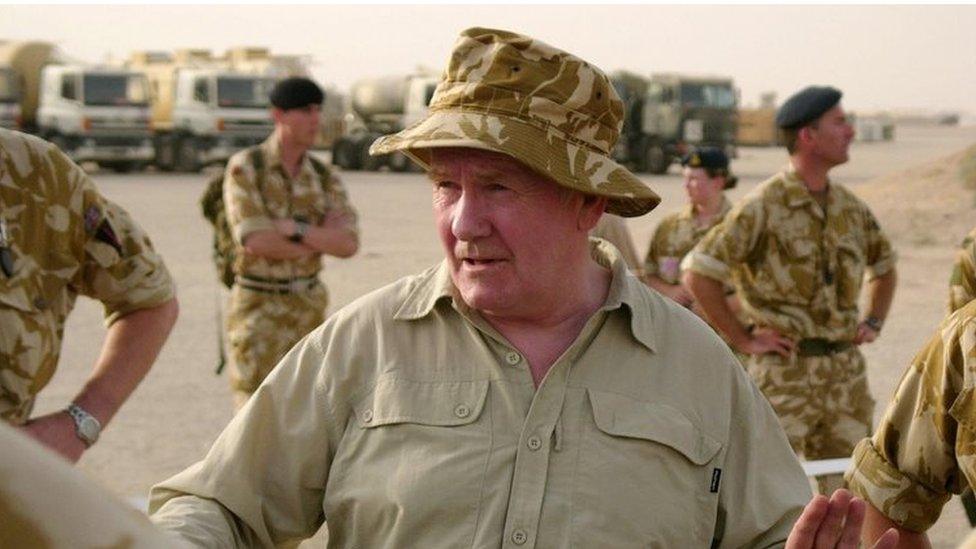
Seen as one of the core Blairites, this would be a return to the job of defence secretary which he held for a year from 2005 before moving to home secretary and standing down when Gordon Brown became prime minister a year later. There's scope for football-related puns thanks to his post-Commons role as Celtic FC chairman.
Deputy PM: David Cameron
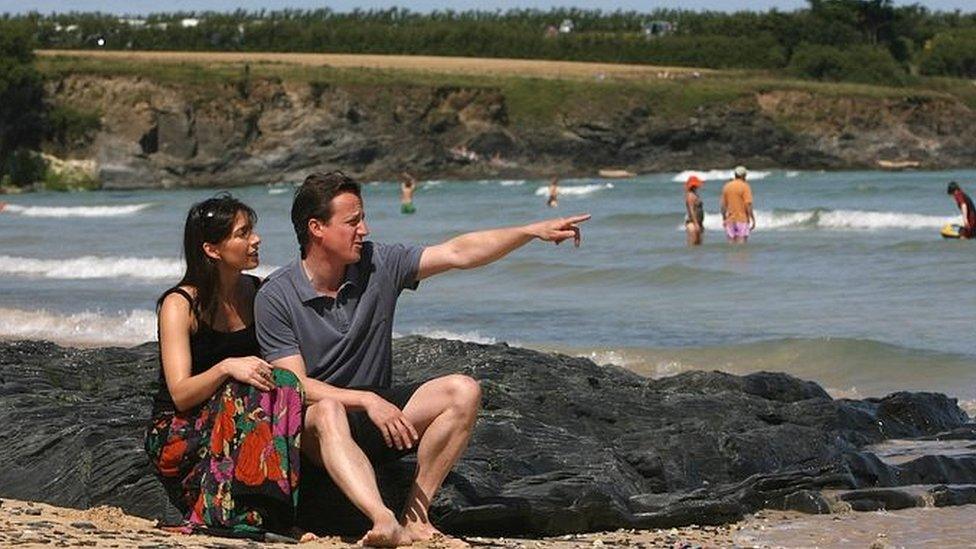
Too soon for a swift return to No 10 but as deputy PM he could be back at the heart of power in a low-key manner, helping to steer this new Major government's agenda. As hardworking as he was as PM, he was never afraid of chillaxing and this looks like the perfect job to allow that combo of a high-status role and the chance to hit a few tennis balls each day or spend a long weekend surfside in Cornwall.
Work and Pensions Secretary: David Blunkett
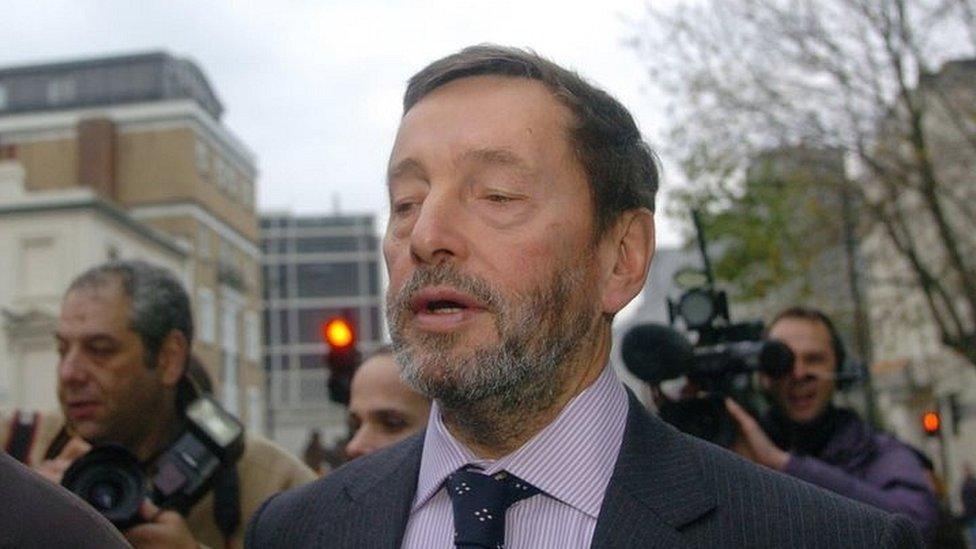
It's a job he's done before and given his past belief in the abilities of big computer systems, could he be the man to wrestle with the introduction of Universal Credit? He'll need all his past Home Office experience in this role too as talk turns towards a possible work permit scheme for those from elsewhere in the EU coming to the UK. Expect scepticism if any academics project low (13,000?) demand for the permits.
Transport Secretary: Michael Portillo
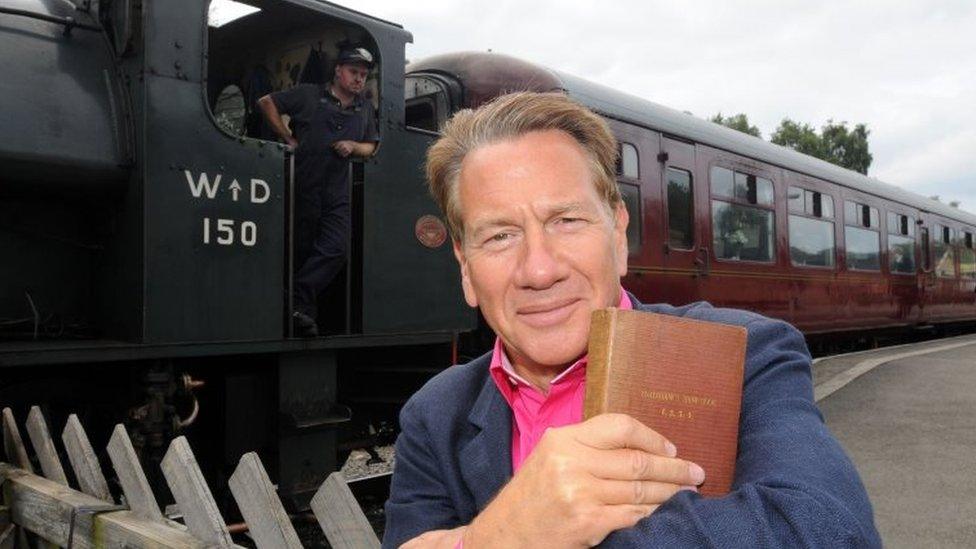
This would've been a surprise suggestion back in the 1990s but the once thrusting Thatcherite appears to have spent much of the past few years - apart from his Thursday night appointment on the This Week sofa - travelling by train with a camera crew in tow. The danger is that only picturesque rail routes will be favoured but Heathrow will hope to persuade him of their third runway case. As someone once said, who dares wins.
International Development: Andrew Lansley
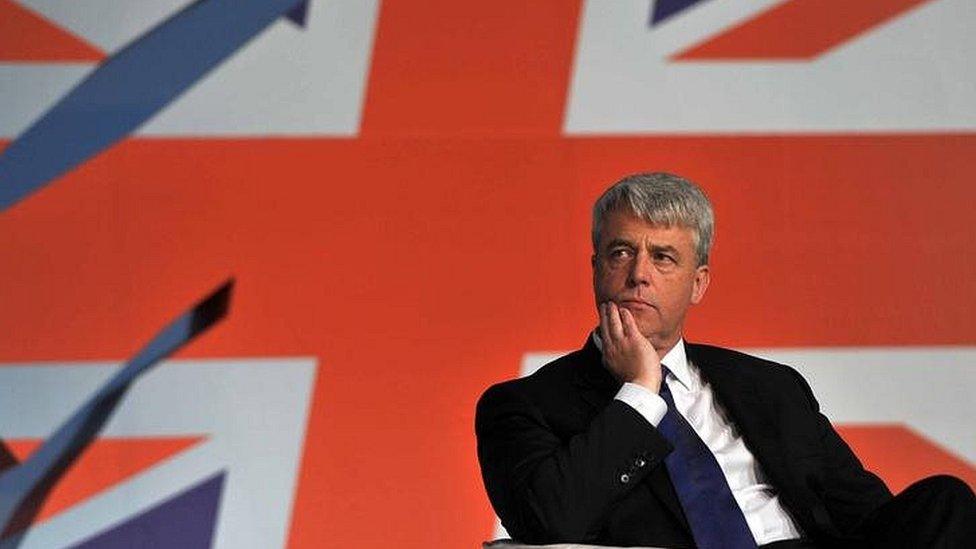
There was a case for the man who revamped the NHS in England after the 2010 election to go back to the role to finish off the job, but that would be unnecessarily controversial for a John Major appointment, so international development it is. A role in which of course there is still a huge health element.
Culture Secretary: Louise Mensch
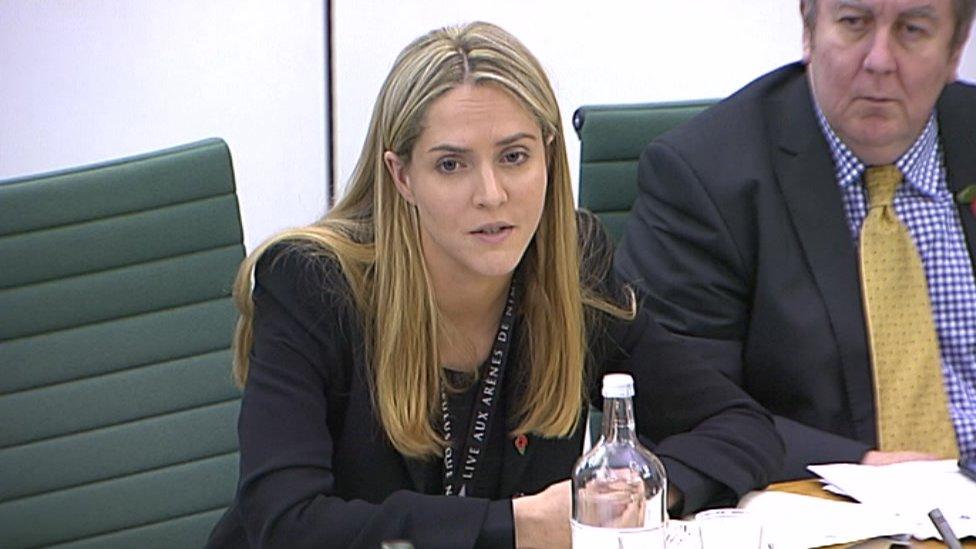
The most difficult thing might be persuading the novelist-turned-politician to move back to London. But she certainly seems to have been keeping up with UK political developments and her pop culture knowledge and her new and old media contacts, plus interest in all things digital, makes her a decent choice. As long as she's allowed to continue tweeting without Whitehall restrictions.
Environment Secretary: Ann Widdecombe
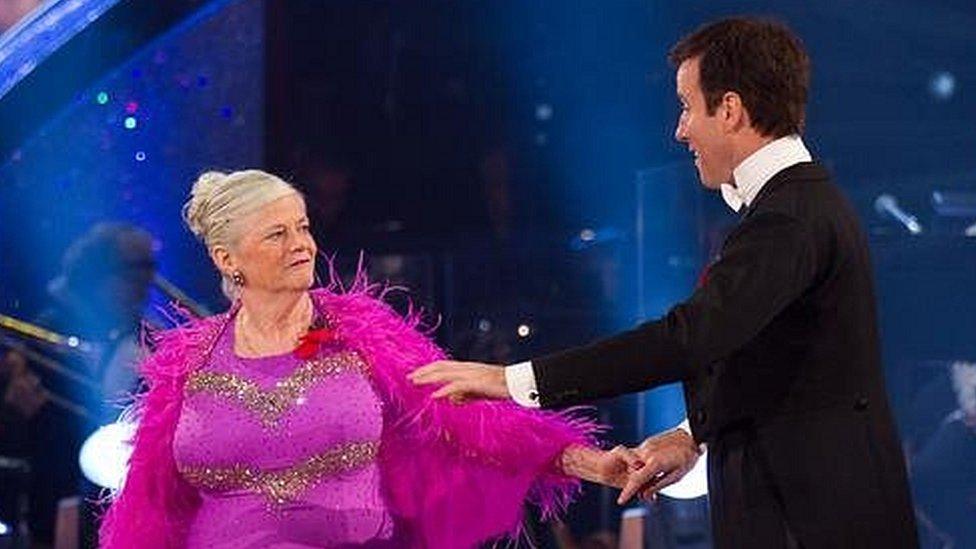
Probably best known for a triumphant turn on Strictly Come Dancing and her time as a Home Office minister during the "prison works" years of the John Major government in the 1990s, she is a committed animal lover but also says she is "not a slave to science" when it comes to climate change - there could be some lively debates over the cabinet table.
Communities and Local Government: Hazel Blears
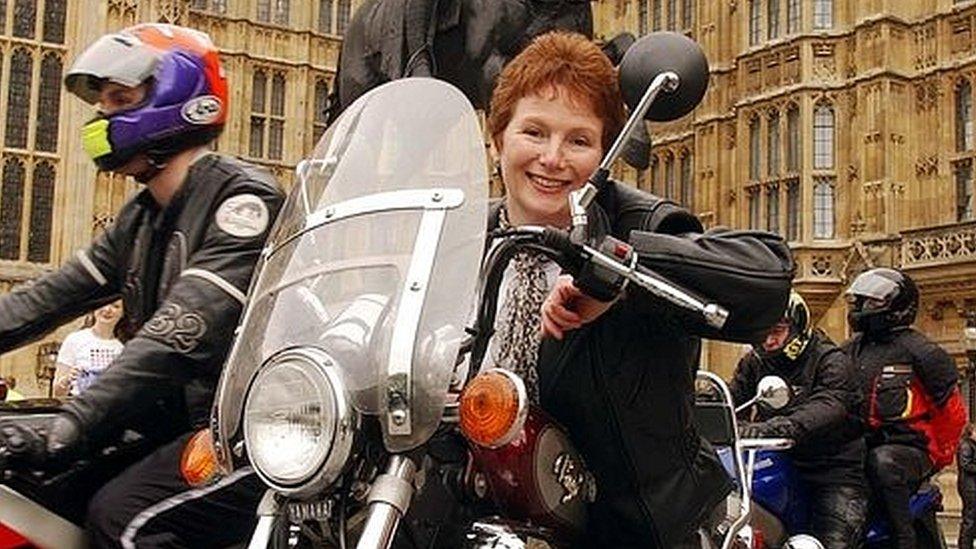
Back to the future for the Blairite ex-Salford MP. That Respect agenda - Asbos and zero tolerance - was a part of the New Labour era that governments before and since have more or less agreed with. There could be some lively arguments over the merits of identity cards too...
Business Secretary: Peter Mandelson
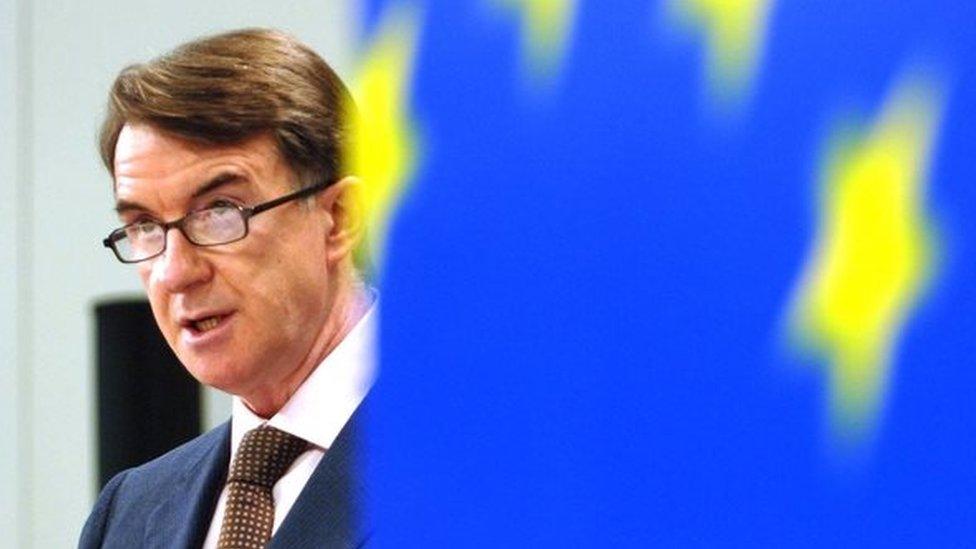
They say football managers should never go back to a job they've had before - but this isn't football and it'd probably be worth it to see how the former European Commissioner approaches the role in the wake of the Brexit vote.
What about the rest?
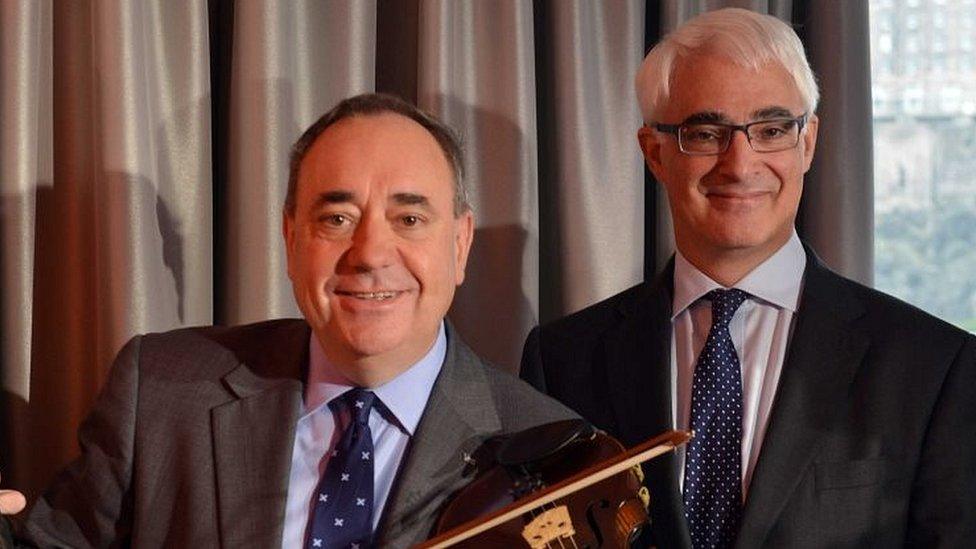
As this is a fantasy cabinet it does not include all the roles, such as chief whip and leader of the Commons. For the nations' portfolios how about a solidly New Labour line-up? Peter Hain resuming his role as Welsh Secretary while Alistair Darling, pictured above with the then SNP leader Alex Salmond in 2014, is asked by a slightly mischievous John Major to build bridges after his referendum role as Scotland Secretary. Meanwhile, ever aware of the threat of a challenge, the PM decides that Northern Ireland is the perfect place for the still-young-and-hungry David Miliband to get his feet back on the UK political ladder.
Here's a selection of your responses:
Prime Minister: Lord Carrington, DPM: John Major, Lord Chancellor: Louise Mensch, Chancellor: Peter Mandelson, Foreign Secretary: William Hague, Home Secretary: Alan Johnson, Health Secretary: Margaret Beckett, Defence Secretary: George Robertson, Business Secretary: Michael Heseltine, Education Secretary: William Hague, Culture Secretary: Estelle Morris, International Development: Peter Hain, Welsh Secretary: Neil Kinnock, Scottish Secretary: Malcolm Rifkind, Chief Whip: Norman Tebbit - Nathan
A cabinet of all the talents would need to be filled with experienced hands and irreverent wits not afraid to speak their minds. John Major as PM would pair well with Ken Clarke as Chancellor, along with Douglas Hurd at the Foreign Office. Michael Heseltine as Home Secretary would lead a sensible domestic policy, while Lord Carrington's wealth of experience in defence and NATO makes him ideal for the MoD. Gillian Shephard for Work & Pensions would complement the skill of Virginia Bottomley at Education. Lady Amos at DfID is a natural fit given her time at the UN, and Malcolm Rifkind can expertly navigate Scottish affairs. Tony Blair in Northern Ireland can crack on in the cozy confines of Hillsborough Castle, no less. Mandelson leading the Lords and Ian Lang running the Commons would provide the much needed charm and avuncular good looks getting on with organising government business - Anthony
Chris Patten embodied the cross-party modern liberal tradition that seems to run through your other selections, 90% of which I agree with, especially the choice of both PM and Chancellor - Andy
Lord Michael Heseltine. Ex Deputy-PM, longtime very senior cabinet minister, with decades experience with commercial business, as well as political business/defence briefs... exactly what is required now. Independently wealthy, therefore beholden to no-one, for favour/advancement - FM
Gordon Brown as chancellor, I should coco! He raided the pension funds, hence all the problems with them. I would suggest Tony Blair as a tea boy, he couldn't do a great deal of damage there - Mike
There has to be room for Ken Clarke. Liked by the public, good communicator, affable personality but very intelligent with a fierce legal brain. Probably as Justice Secretary although could do anything - Jonathan
I think that Kenneth Clarke was the best chancellor the country has had in the last 30 years or so. He was a pragmatist who sought to improve the country's financial position. Whereas Gordon Brown was merely a man driven by an out-dated socialist ideology - Malvern (editor's note, Ken Clark didn't qualify for our list as he is still active in the House of Commons)
Wrong question. It should be Are politicians starting too young. Portillo has mellowed and would now be an asset back in parliament - Richard
William Hague is a great loss to this country in many ways.... apart from Churchill I do not think we have anyone who I would want back - Betty
Prime Minister: Clement Attlee, Deputy Prime Minister: Alistair Darling, Foreign Secretary: Ernest Bevin, Home Secretary: Douglas Hurd, Chancellor of the Exchequer: Roy Jenkins, Chief Secretary to the Treasury: Norman Lamont, Secretary of State for Trade and Industry: Barbara Castle, Secretary of State for Defence: Earl Alexander of Tunis, Secretary of State for Health: Mo Mowlem, Secretary of State for Justice: Bob Marshall-Andrews, Secretary of State for Education: RA Butler, Secretary of State for Transport: Michael Portillo, Secretary of State for Farming and Rural Development: Fred Peart, Secretary of State for Work and Pensions: Harold Macmillan, Secretary of State for Communities and Local Government: Bessie Braddock - Chris
A cabinet of still living ex-MPs who during their careers lost their seats in general elections in cabinet/ shadow cabinet briefs they once held: PM: Michael Portillo, Chancellor: Ed Balls, Chief Secretary to the Treasury: Danny Alexander, Foreign Secretary: Douglas Alexander, Home Secretary: Jacqui Smith, Business Secretary: Vince Cable, Trade Secretary: Lord Ian Laing, Culture Secretary: David Mellor, Environment Secretary: Ed Davey, Defence Secretary: Jim Murphy, Education Secretary: Charles Clarke, Health secretary: Lord William Waldegrave, Scottish Secretary: Lord Michael Forsyth, Northern Ireland Secretary: David Trimble, Welsh Secretary: Lord Michael Ancram, Leader of the House: Baroness Ann Taylor Work and Pensions Secretary: Tony Newton, Chancellor of the Duchy of Lancaster: Roger Freeman, International Development: Baroness Lynda Chalker, DPM (Chairman): Lord Chris Patten - David
Lembit Opik - Minister without Portfolio - Geoff
Follow Alex Hunt on Twitter @ialexhunt, external
BBC Politics News and Daily Politics are on Facebook, external
- Published12 September 2016
